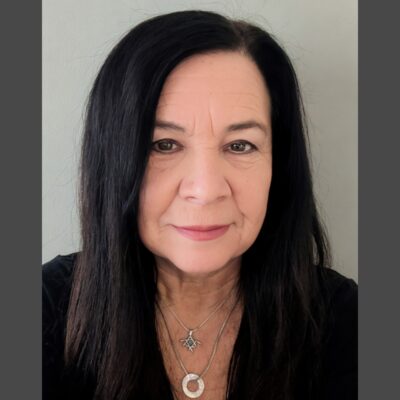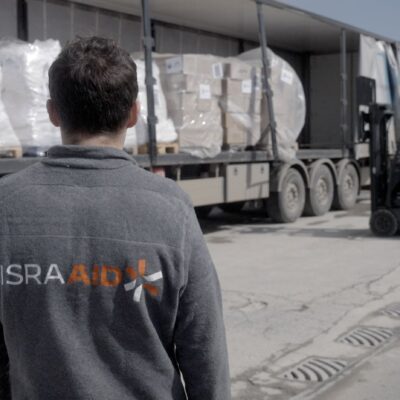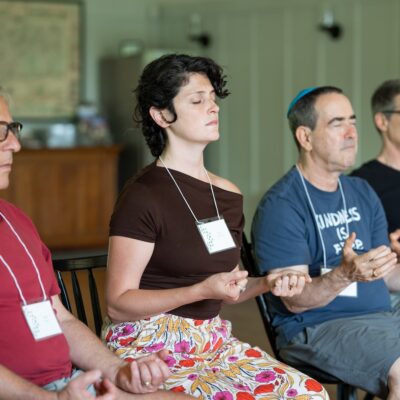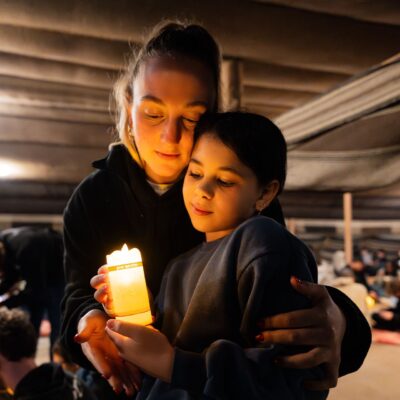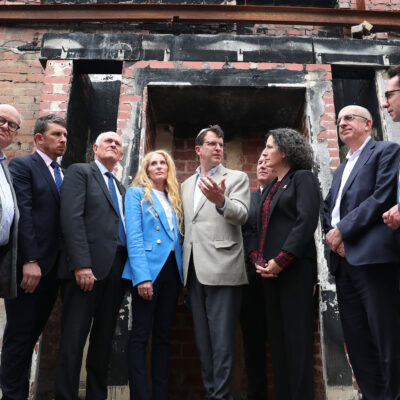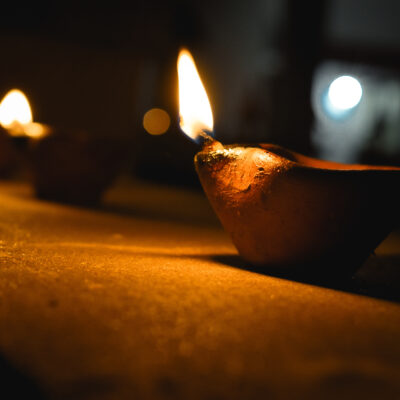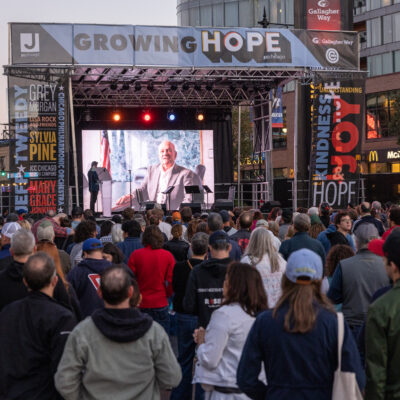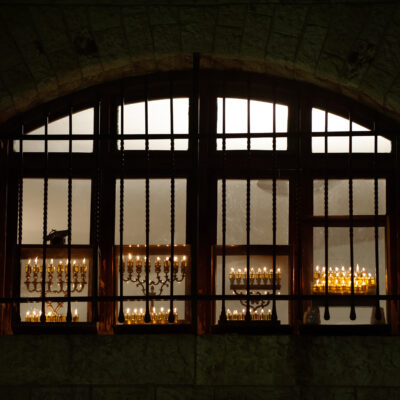Modern Orthodox education network boosts mental health as students, staff experience loss post-Oct. 7
Along with studying Jewish texts and secular subjects, students at Ohr Torah Stone, the Modern Orthodox educational network, are getting a crash course in handling grief. The institution has lost at least 13 alumni in the Israel-Hamas war, as well as 31 family members of students and faculty.
The profound sense of loss experienced by the Ohr Torah community has spurred its president and rosh yeshiva, Rabbi Kenneth Brander, to put a new focus on students’ mental health, including through art and music therapy courses, and group therapy sessions for both students and faculty. “You can’t educate students when their hearts are broken. But when their hearts are broken, and you are sensitive to it, sometimes you can engage them in ways that you couldn’t before,” Brander told eJewishPhilanthropy.
At the peak of the Israel-Hamas war, 4,000 students, alumni, and faculty members from Ohr Torah Stone were serving in the Israel Defense Forces. The dozens of alumni and family members killed and more injured in the war prompted a need for extensive mental health support, the organization found.
While the government provides funding for only one mental health professional per school, Ohr Torah Stone, which is based in the West Bank settlement of Efrat and operates institutions throughout the country, has allocated significant funds to ensure multiple mental health professionals are available at each institution.
The Ohr Torah Stone educational network serves around 5,000 students in six high schools, two “hesder yeshivot hesder” — in which young men alternate between religious study and military services — and four programs for Orthodox women who study for a year before serving in the army. The organization also includes a network of over 300 emissaries in spiritual and educational Jewish leadership roles worldwide and a program, Yad La’Isha, which supports women who have been denied a religious divorce, or get, by their husbands.
Ohr Torah Stone has already spent roughly $600,000 on its mental health initiatives, but in light of recent additional requests, the organization predicts that the total will be closer to $750,000 as the school year opens next month. Among the donors to these programs are the Jewish United Fund of Chicago, David Eisner, Maimonides Fund, the M D Katz Foundation, Jeff and Jodi Harris, the Jewish Federation of Greater Hartford, Judi Stern, the Jewish Federation of South Palm Beach, Micah Philanthropies, Morry and Judy Weiss and the Walder Foundation.
“As the person in charge of Ohr Torah Stone 32 institutions, I felt it was our responsibility to make sure that our students, alumni and faculty had a mental health infrastructure to protect them in any way we could,” Brander said. “High schools generally only have a guidance counselor, who is not equipped to provide individual therapy. The only high school students entitled to counseling sessions are those in special needs classes. Thousands of students whose parents are in the army or who lost siblings have no support infrastructure unless, God forbid, it becomes life-threatening. We don’t want it to get to that point.”
“So we conducted a forensic analysis of the needs for every institution,” Brander explained. “With donor support, we secured funds to support any student or faculty member needing mental health assistance for the next two years.”
Currently, over 130 students and 20 faculty members are receiving individual mental health support. Additionally, Ohr Torah Stone offers group therapy sessions for both students and faculty. The therapeutic interventions include art therapy and music therapy, allowing participants to process their grief and trauma constructively.
For instance, art therapy projects have allowed teens to express themselves amidst the ongoing conflict. Neveh Channah High School students created 32 mosaics representing the Gaza border communities, now displayed in various locations throughout Israel. Another project was an exhibition at the Bible Lands Museum Jerusalem, featuring works from fallen soldier Eitan Rosenzweig, an alumnus of OTS’s Neveh Shmuel Yeshiva High School.
Additionally, 11th-grade students at Ohr Torah Ariel High School in Ramot, Jerusalem, took the initiative to create a Tree of Life art piece for their Beit Midrash entrance in memory of their teacher Avri’s son, Elkana Newlander, who fellwas killed in Gaza, and former staff member, Tal Levy, who was killed on Oct. 7.
While there is broad consensus among Israeli mental health professionals that the country will see a spike in post-traumatic stress disorder (PTSD) and other conditions as a result of the Oct. 7 terror attacks and the subsequent war, the extent of that increase is a matter of some debate. Researchers from Hebrew University of Jerusalem, Columbia University, Shalvata Mental Health Center in Hod Hasharon, and the Effective Altruism organization estimate that 500,000 Israelis may develop PTSD, while Yair Bar-Haim, head of the new National Center for Traumatic Stress and Resilience at Tel Aviv University, expects 30,000 new cases of PTSD.
Brander noted that the informal summer schedule has increased the recognition of mental health needs. “If we had this interview six weeks ago, the number of people getting counseling would be 40% of what it is now,” he said.
These days in Israel, the stigma around seeking mental health support is diminishing. “The entire country is now talking more about mental health than they ever did before,” said Brander. “That in itself, the atmosphere is different. It’s being discussed.”
Brander has also taken steps to lead by example. “I let it be known that I have reached out to a mental health professional. Going to 40 funerals and then shiva calls for students, including those I recited the bracha under their chuppah, and now standing at their funeral, is incredibly hard. By openly seeking help, I hope to give others the license to do the same.”
Ohr Torah Stone’s proactive measures highlight the critical need for mental health support in times of crisis. Brander emphasized the importance of addressing these needs comprehensively: “Our faculty needs to be healthy. My colleagues need to be healthy. Therefore, suggesting in the most loving way that this support is open for everybody. No one should feel embarrassed.”

 Add EJP on Google
Add EJP on Google